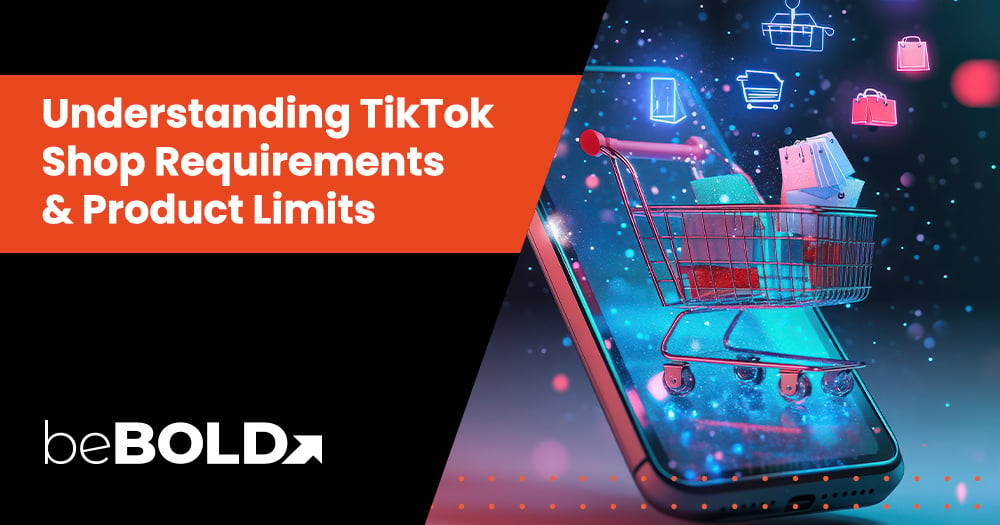Amazon is the world’s largest online marketplace, but that doesn’t mean getting your products in front of potential customers is easy. With nearly 2 million sellers on the platform, all competing for the attention of its user base, standing out from the crowd can be challenging.
Optimizing your keyword strategy is crucial for increasing visibility and driving sales on Amazon. The marketplace’s search algorithm uses keywords to match customer search queries with relevant products. Like a search engine, the top results get the most views and, therefore, the most leads.
If you’re looking for a better grasp of the internal mechanisms of Amazon’s algorithm, this article will cover the basics you need. It’ll discuss how to conduct Amazon keyword research and select the most effective words for your products.

What is Amazon Keyword Research?
Amazon keyword research is the process of identifying which words to use on a listing for maximum visibility and coverage. There are two types:
- Search keywords are those included in the product title, bullet points, and description
- Hidden keywords are found behind the scenes under “Search Terms” on Seller Central
Ensure your listing contains all the relevant keywords to your product. It’ll help your product appear in more searches and increase the likelihood that more people will find it.
How to Do Keyword Research on Amazon
Conducting keyword research for Amazon includes using the platform’s built-in tools, third-party software, and your personal experience to find the best keywords for your products.
Utilize Amazon’s autocomplete feature
When you start typing a search term in the search bar, it’ll generate a list of suggestions to complete your query. These suggestions provide insight into what customers are searching for and give you ideas of which may be usable.
Be sure to use the appropriate category. For example, beauty product sellers should search under Amazon Beauty.
Explore third-party tools
Many free and paid third-party tools can help you identify relevant keywords and assess their search volume. They may also provide insights that aren’t directly available on Amazon.
Some services offer more than just keyword help. BeBOLD Digital, a beauty marketing agency, has a full suite of services specialized for beauty product sellers on Amazon.
Test keywords against each other
Use a third-party tool or Amazon’s back-end statistics to assess the number of search results and the quality of the competition for each keyword. High search volumes and low competition indicate a keyword with solid potential, while the opposite may not be worth targeting.
You only have a limited space for keywords, so this step can help you select which phrases to include and which to drop.
Compare the competition
While you don’t have access to your competitor’s Search Terms, you can use their titles and descriptions to get an idea of their target words. It’ll help you use similar words on your listings and remind you of synonyms that might have slipped your mind.
Think about the customer’s personal experience
Be sure to understand your customers and the circumstances they can encounter when using your product. For example, if you sell wallets, it’s unlikely that buyers have never had a wallet before. Instead, they’re probably looking for replacements, so durable materials can be good keywords to include.
How to Use Amazon Keywords to Enhance Product Relevance?
Optimizing your product listings with the right Amazon keywords is essential for improving visibility and driving sales. Here's how to effectively use Amazon keywords to boost your product's search ranking and overall discoverability.
Add Keywords in the Product Title
Your product title is one of the most important fields for boosting product visibility on Amazon’s search engine. Including relevant Amazon keywords in the title can significantly improve your position in the search results. A well-crafted product listing title should incorporate important keywords (such as the brand name, product type, size, and color) while maintaining readability. By naturally integrating the most popular keywords or long-tail keywords, your product is more likely to rank higher in organic search results, making it easier for potential customers to find.
Add Keywords in Product Details
Product details, such as bullet points and descriptions, provide further opportunities to insert relevant keywords. Use this space to elaborate on the product’s features, benefits, and uses, incorporating keywords naturally throughout. Not only does this enhance the product’s relevance in search queries, but it also gives potential customers a clearer understanding of the product’s value. Ensure the keywords blend seamlessly within the content to maintain clarity and professionalism while increasing the search ranking.
Add Amazon Hidden Keywords & Search Terms in Seller Central Account
In addition to the visible keywords in titles and descriptions, Amazon allows sellers to include hidden keywords in the back end of Seller Central. These search terms, which customers do not see, can further boost product discoverability without cluttering the visible product content. Be sure to fill out all five available fields with relevant keywords that didn’t fit into the title or product details. These hidden keywords can include common misspellings, alternate product names, or other terms customers might search for, helping expand your product’s reach without compromising the appearance of your listing.
8 Amazon Keyword Tips
Selecting which keywords to use after thorough research can be difficult. To that end, here are some tips for choosing the most effective ones.
1. Focus on long-tail keywords
Long-tail keywords are more specific and targeted, so they can help you reach customers looking for exactly what you offer. For example, instead of “running shoes,” you can target “women’s trail running shoes” or “men’s lightweight running shoes.”
2. Avoid keyword stuffing in the listing
You might be tempted to stuff your product description with as many keywords as possible, but that could harm your reputation and your product’s visibility. Instead, use keywords naturally and strategically in your product title, bullet points, and descriptions.
3. Sort your keywords
Make sure your most important keywords are in the part of the listing that customers see, helping your listing be clear and understandable for any viewers. You can place secondary keywords in the “Search Terms” section on the back end to acquire their searchers.
4. Use regional and seasonal keywords
Regional and seasonal keywords may be highly relevant depending on the nature of your product and the target audience. For example, “beach umbrella” can be a highly effective keyword during summer months or in coastal regions.
5. Use Amazon’s tools
Amazon offers several services that sellers can use to optimize their listings. To find high-performance keywords and run targeted ads based on them, use their Advertising Console. Amazon Brand Store is a self-service tool that helps you drive customers to other products you offer.
6. Track performance and update regularly
Once you’ve identified a set of keywords and optimized your listings, you must track their performance over time. Doing this lets you determine what’s working and which phrases to re-evaluate.
This step also helps keep you up to date with any shifts in the market. For example, if a related product goes viral, you may want to adjust your keywords to catch some hype.
7. Find keyword suggestions with the Amazon search bar
A great tip for Amazon keyword research is to use the Amazon search bar's search suggestion feature for suggestions. As you type a product-related term, Amazon generates popular search phrases based on real-time customer behavior. These suggestions offer valuable, trending keywords that can be added to your product title, description, and back-end search terms, helping boost visibility and ranking.
8. Use the Keyword Research Tools
Another valuable tip for Amazon keyword research is to use dedicated keyword research tools for your Amazon product. These tools analyze search volume, competition, and trending keywords, providing data-driven insights to help you choose the most relevant keywords and terms. Using research tools for effective keyword search, you can discover high-ranking keywords that customers frequently search for, including long-tail keywords and related phrases. These tools save time by delivering comprehensive keyword lists, enhancing your product’s visibility and optimizing your listings for better search performance on Amazon, streamlining the entire keyword research process.
Here are some free keyword research tools that can help you optimize your Amazon keyword research:
- Amazon Autocomplete
- Google Keyword Planner
- Google Trends
- Ubersuggest
- Sonar by Sellics
- AMZ Suggestion Expander
Amazon Keywords: The Secret to Standing Out
Standing out in the world’s largest online marketplace is a challenge. Yet, with the right keyword research, you can outperform your competitors and top the search engine results page.
Keeping up with Amazon's search algorithm changes is essential to stay one step ahead of your competition. Use the tips and strategies in this article to optimize your Amazon keywords and drive more traffic and sales to your listings.
If you’re an Amazon seller using Seller Central or Vendor Central who wants to take their sales to the next level, consider partnering with beBOLD Digital. We’re an Amazon agency with years of experience under our belt. Contact us today to learn more!
Frequently Asked Questions (FAQs) About Amazon Keyword Research
How to choose the best keyword research tool for Amazon SEO?
When choosing a keyword research tool for Amazon SEO, it’s important to consider factors such as accuracy, relevance, competitiveness, user-friendliness, and pricing.
Accuracy refers to the tool’s ability to provide relevant and precise keyword suggestions, while relevance refers to the tool’s ability to suggest keywords that are relevant to your product. Competitiveness refers to the tool’s ability to provide insights into the competition for each keyword.
Also, gauge the tool’s ease of use and the availability of helpful features such as filters and sorting options. Lastly, determine the cost of the tool and whether it fits within your budget.
What is the significance of long-tail keywords in Amazon SEO?
Long-tail keywords are more specific than short-tail keywords and are typically less competitive. They help you rank higher in product searches on Amazon and attract more qualified traffic to your product page.
By using long-tail keywords, you can target customers looking for a specific product or feature, increasing your chances of making a sale. Long-tail keywords can help you differentiate your product from competitors and improve your product’s visibility on Amazon.
What are Amazon backend keywords?
Only Amazon sellers can see Amazon backend keywords. They are hidden keywords that tell Amazon’s algorithm that a specific keyword is relevant to your listing. Backend keywords are key to improving visibility and driving conversions.
When choosing backend keywords, it is important to consider factors such as relevance, search volume, and competitiveness. Choose keywords relevant to your product with a high search volume but low competition. This will help you rank higher in product searches and attract more qualified traffic to your product page.
How often should I update my Amazon keywords?
There is no fixed frequency for updating Amazon keywords. However, it is recommended to update them regularly to keep up with the changing market trends and customer search behavior. Monitor your product’s performance regularly and make changes to your keywords as needed. Additionally, conduct regular keyword research to identify new keywords that are relevant to your product and have a high search volume.
How can Amazon PPC campaigns complement my keyword research efforts?
Amazon PPC campaigns can complement your keyword research efforts by providing valuable insights into the performance of your keywords and helping you identify new keywords to target. By running PPC campaigns, you can test the effectiveness of your keywords and optimize them for better performance.
Additionally, you can use PPC campaigns to target specific customer segments and drive traffic to a product page. By combining keyword research with PPC campaigns, you can improve your product’s visibility on Amazon and increase your chances of making a sale.
Is it necessary to localize keywords for different Amazon marketplaces?
Yes, it is necessary to localize keywords for different Amazon marketplaces. Localizing your keywords involves translating them into the marketplace language you are targeting. This is important because customers in other marketplaces may use different search terms to find products.
Localizing your keywords can improve your product’s visibility in local search results and gain more qualified traffic for your product page. Additionally, localizing your keywords can help you differentiate your product from competitors and improve your product’s relevance to local customers.







Comments